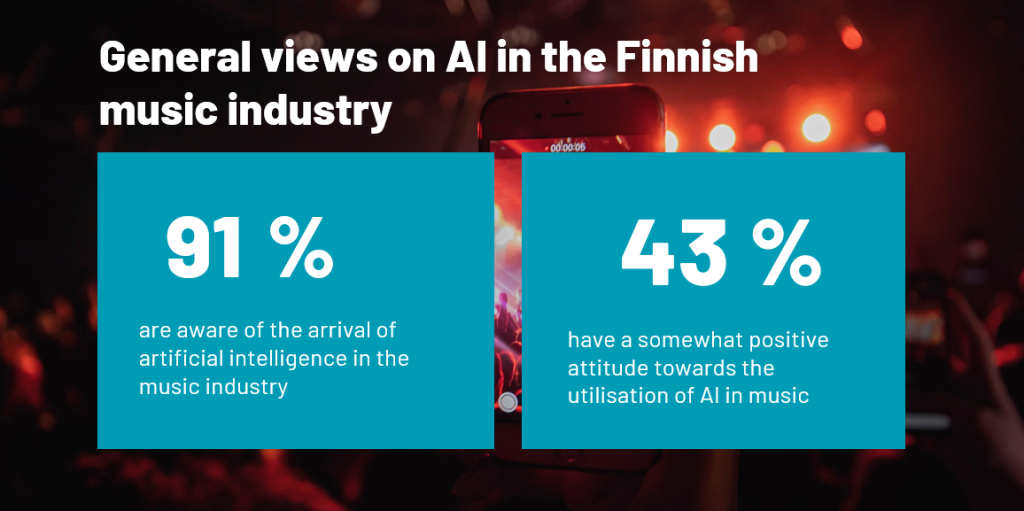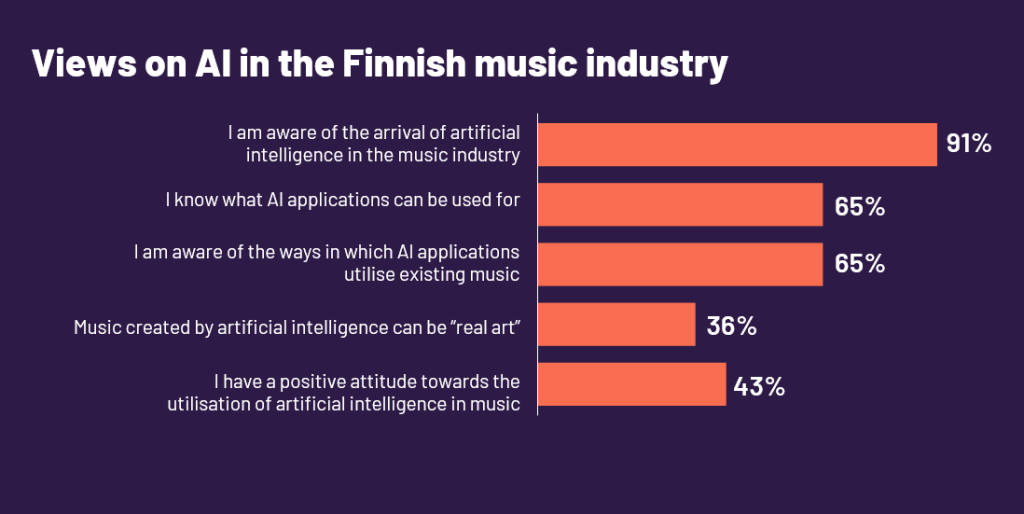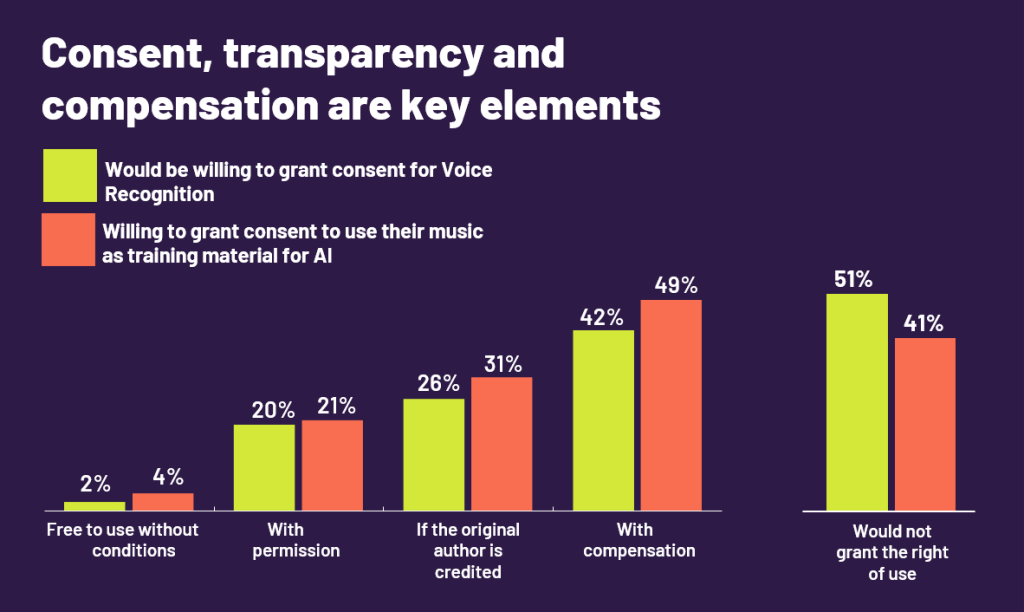A third of music authors are already using AI – and they want to hold on to their rights

Artificial intelligence is also rapidly gaining ground in the Finnish music industry. According to a survey conducted by Teosto, about a third of experts in the field already have experience in using AI tools. However, creators do not want to just hand over their creative work for the use of artificial intelligence – giving consent, transparency of use and receiving reasonable remuneration for one’s own work are considered to be important factors.
In the music industry, AI is proving to be an industry-wide transformative force that introduces new opportunities but also threats. With a survey aimed at its music author members, Teosto mapped the prevalence of the use of artificial intelligence and general attitudes towards artificial intelligence. The goal was to form a comprehensive view of how artificial intelligence and the opportunities and threats it brings are viewed in the music industry.
The music industry’s attitudes towards AI are divided
The attitudes of Finnish music authors towards AI are mainly expectant. Nine out of ten respondents were aware of the emergence of AI in music, and two out of three respondents also knew what AI can be used for or how AI applications utilise existing music.
The attitudes seem to be divided: one half of the respondents had a negative attitude towards AI, while the other half was curious about it. Out of the respondents, 43% said that they felt positive about AI, but only a third believed that music created by AI could be considered “real art”.
“Several open comments emphasised the many benefits of AI to the profession, but, on the other hand, some comments also conveyed that AI should be banned everywhere,” says Vappu Aura, Director of Communications and Public Relations at Teosto, who carried out the survey.

Many have already utilised AI in their work
AI solutions can be useful to music authors: they can facilitate the creative process of music and help in the production phase and marketing. According to the survey, one third of the respondents have already used artificial intelligence tools. Here, too, Finns are at the forefront of international development: according to a recent international survey, 27% of the respondents had utilised artificial intelligence. In a survey conducted by the British copyright organisation PRS for Music, AI tools had been used by 29% of the respondents.
Artificial intelligence is used by about a fifth of the respondents to aid the creation process.However, even more utilisation possibilities centre around technical tasks such as mixing, recording and music marketing.
Many are curious about AI: up to 70% of the respondents said that they are interested in using AI in the future. The majority of the respondents felt that AI would be most beneficial in music marketing, but 42% of the respondents said that they wanted to utilise it in the music creation process.
“There is also a clear curiosity towards artificial intelligence. The need for knowledge, training and building understanding in the music industry is great,” says Vappu Aura.
Holding on to rights is seen as crucial
According to the legislation, work produced by artificial intelligence is not eligible for copyright protection. This fact was also known by three out of four of the survey respondents. According to the survey, only a few respondents (15%) would be willing to change this.
According to the survey, the copyright of work created by humans is also considered important: only a few per cent would be willing to give their music for the use of artificial intelligence applications without any terms and conditions. Out of the respondents, 41% would under no circumstances make their music available for AI applications.
Generative AI applications use existing music as training material and create new content based on it. Approximately one third of the respondents considered credits transparency essential in AI applications. Half of the respondents felt that the use of works should also be subject to remuneration.

Decreased income generation is seen as the main threat
The respondents were also asked about their biggest fears or threats regarding AI. Four fifths of the respondents were particularly concerned that the income from music would decrease or be distributed more unfairly. Increased plagiarism and decreased importance of creative work were also common concerns.
However, many of the respondents believed that humans and the human creative process will continue to play a key role in music in the future.
“I trust that artificial intelligence will continue to make uninteresting music, so the damage is not great from an artistic point of view.”
“There is always an audience for so-called organic music. People want to listen to live music played by real people.”
The Teosto AI survey was carried out in September 2023 as a digital member survey, which was sent by e-mail to Teosto’s individual members (approximately 30,000 e-mail addresses). The survey was answered by 717 music authors, artists, producers and publishers in September 2023. The most common music genres that the respondents represented were pop and rock/heavy music, but classical music also accounted for almost a fifth of the respondents. The majority of the respondents were long-time professionals: 84% of the respondents had more than ten years of experience in the music industry.
Ano Sirppiniemi, who is responsible for foresight work at Teosto, considers it important to form a broad view of the impact of artificial intelligence on the creative sector in the future.
“As artificial intelligence has rapidly entered the creative industry, the need to quickly identify related phenomena and develop clear rules for the use of artificial intelligence has grown. A responsible approach to AI that takes into account the protection of the author’s property and copyrights is essential for the rightholders represented by Teosto. We will use the results of the survey to plan our future operations, services and policy affairs.”